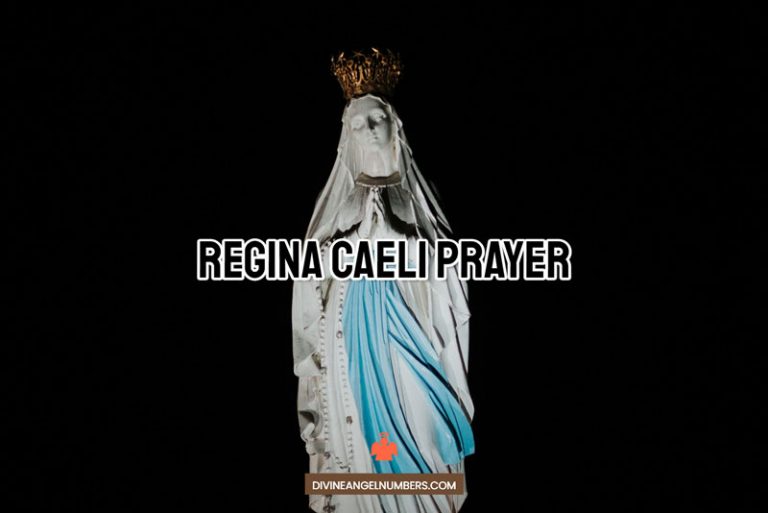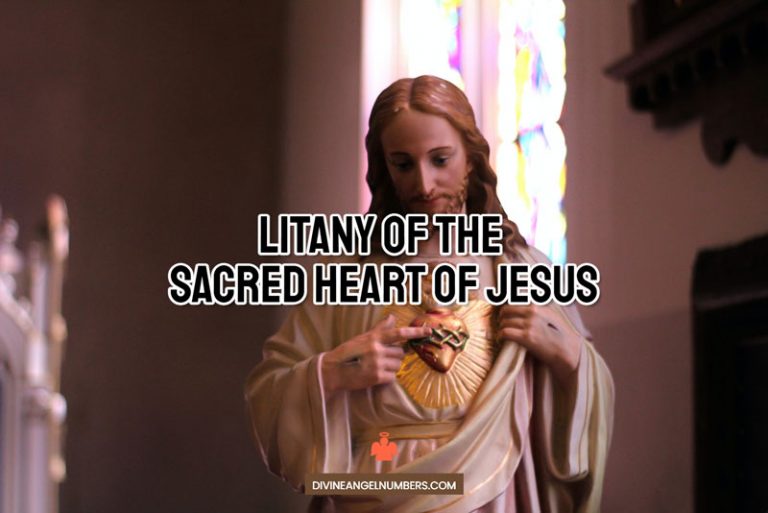According to the Catholic Church’s doctrine, there is a Heaven, Hell, and Purgatory. For Catholics, Purgatory has two purposes. Firstly, Purgatory serves as a temporal punishment for sin. Secondly, it cleanses all attachments to sin. Purgatory is where the soul is purified before its grand entrance into heaven.
Catholicism doesn’t teach that everybody goes to Purgatory. Nor does it consider a spiritual jail or hell with parole.
However, the Church says that in this life many people are purified or purged. For instance, people suffering from chronic illnesses, poverty, or unfair prosecution live in purgatory and go straight to heaven when they die.
Catholic doctrine says that if two men die at the same time, and one of the men is a lazy, unreliable, and dishonest person who repents his old ways and accepts the Lord into his heart on his deathbed and the other is an honest man who obeyed the Ten Commandments, then both the men will not enter Heaven at the same time.
Because they believe that Jesus’ death people the possibility of heaven, however, his justice also demands that good is rewarded and evil is punished in either this life or the next.
Therefore, Purgatory is a spiritual state of the soul in which it is purified before entering heaven. Catholics also don’t see purgatory as a place filled with pain and torment.
- What is Purgatory?
- Is Purgatory ever mentioned in the Bible?
- How many times is Purgatory mentioned in the Bible?
- Do Christians believe in Purgatory?
- Who goes to Purgatory?
- What is Purgatory like?
- What happens in Purgatory?
- Purgatory vs Hell
- Purgatory vs Limbo
- Purgatory in Different Religions
- Prayer for the Poor Souls in Purgatory
What is Purgatory?
According to the Catechism of the Catholic Church, purgatory is a place where “All who die in God’s grace and friendship, but still imperfectly purified, are indeed assured of their eternal salvation; but after death, they undergo purification, so as to achieve the holiness necessary to enter the joy of heaven.”
This indicates that even if you die without a mortal sin on your soul, your soul is still not ready to ascend to heaven because either you are too attached to earthly life or you have venial sins on your soul.
Heaven declines your soul’s entry because you are still attached to earthly concerns and sins.
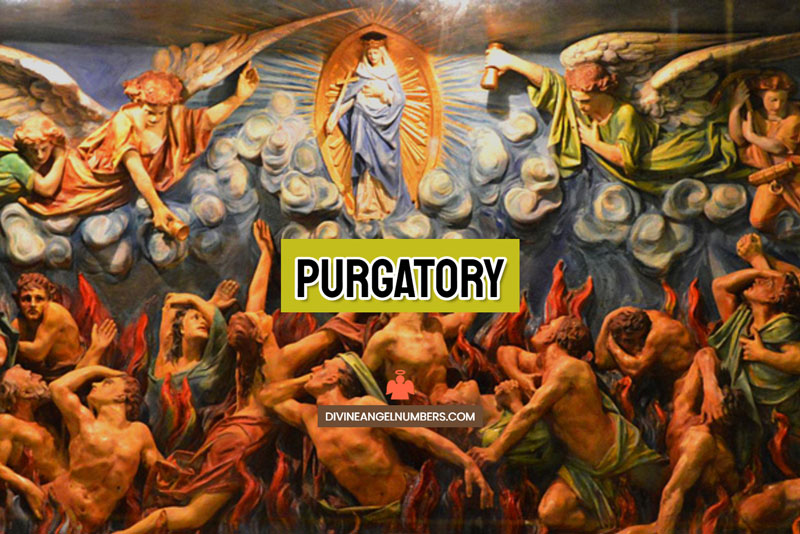
Is Purgatory ever mentioned in the Bible?
The first Christians didn’t lay down any universal beliefs that support the existence of Purgatory. The doctrines and descriptions related to Purgatory have developed over the centuries.
Christians in the west started taking an interest in the existence of the interim states gradually. Roman Catholics believe that the following Bible verses support the existence of purgatory.
1) 2 Timothy 1:18 – “may the Lord grant that he will find mercy from the Lord on that day! And you know very well how much service he rendered in Ephesus.“
2) Matthew 12:32 – “Whoever speaks a word against the Son of Man will be forgiven, but whoever speaks against the Holy Spirit will not be forgiven, either in this age or in the age to come.“
3) Hebrews 12:29 – “for indeed our God is a consuming fire.“
Read more: Novena To The Holy Spirit For The Seven Gifts
How many times is Purgatory mentioned in the Bible?
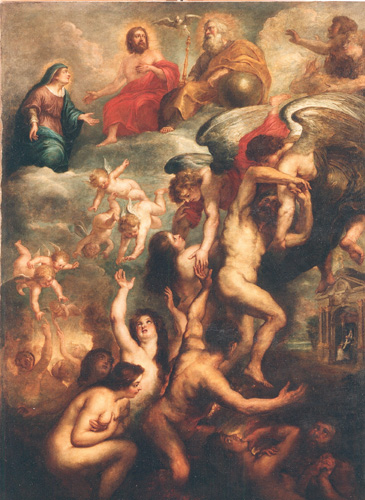
There is no clear reference made to the word “purgatory” in the Bible. However, many argue that there are several verses that offer support for purgatory. Some of these are:
1) Isaiah 4:4: “When the Lord has washed away the filth of the daughters of Zion, and purged the blood of Jerusalem from her midst, by the spirit of judgment and by the spirit of burning.” It is argued that this verse hints at the doctrine of purgatory. For instance, in this context, burning refers to the fires of judgment.
2) Hebrews 9:27: “And just as it is appointed for mortals to die once, and after that the judgment.” Believers of purgatory perceive that the events in this verse happened immediately after one another. The righteous either go to heaven if they have a pure soul or purgatory if their soul requires purification.
3) Matthew 5:25-26: “Agree with your adversary quickly, while you are on the way with him, lest your adversary delivers you to the judge, the judge hand you over to the officer and you are thrown into prison. Assuredly, I say to you, you will by no means get out of there until you have paid the last penny.” In Roman Catholicism, it is taught that the prison mentioned in this verse is purgatory and the last penny represents the payment for the purification or purging of sins.“
Read more: Adoración al Santísimo Sacramento del Altar
Do Christians believe in Purgatory?
While Catholics believe in purgatory, Protestant Christians vehemently oppose and deny the existence of purgatory. Firstly, they oppose the existence of Purgatory because there is a lack of evidence in the Bible that supports its existence. Secondly, its existence is denied by Protestant Christians because purgatory denies the biblical doctrine of justification by faith alone.
According to the Bible, by entrusting Jesus Christ as our savior, we are automatically saved from our sins. Our belief in Jesus Christ reassures us that our sins are taken away by Christ’s death on the cross and our sins are forgiven because Christ bore them in our place.
Furthermore, we are accepted by God in heaven because through faith our sins have been taken away and received by Christ’s righteousness.
Who goes to Purgatory?
Purgatory is not a place of spiritual cleansing where the unrepentant can avoid hell or prove that they are worthy of going to heaven. Instead, it is the last stop of purification where the soul is prepared for heaven.
According to Revelations 21:27, “but nothing unclean will enter it, nor any[one] who does abominable things or tells lies.” Only the souls of people who have committed no sins can enter heaven immediately.
Souls that have neither repented nor confessed their mortal sins will go straight to heaven. And since nobody fits either of those boxes perfectly, therefore, they land somewhere in the middle and that place is called purgatory.
People who have repented and confessed their sins will go to purgatory in order to remove the temporal effects of sin before entering heaven so that their soul is clean.
People who before death were guilty of venial sins or those who fail to perform sufficient penance for sins already forgiven make their way into purgatory.
Also, people who die in a state of friendship with God but still have some attachment to sin also go to purgatory. Automatic entrance into heaven is not biblical and neither is the assurance of salvation.
Read more: Stations of the Cross
What is Purgatory like?
According to the Catechism of the Catholic Church, “The tradition of the Church, by reference to certain texts of Scripture, speaks of a cleansing fire” is the only official pronouncement that describes what happens in purgatory.
To get a better understanding of what purgatory is like and what happens in purgatory, we’ll have to look at the 3 most popular visions of purgatory.
1) The Vision of Saint Maria Faustyna Kowalska – St. Maria Faustyna Kowalska was a Polish nun most commonly known as St. Faustina. She famously claimed to have had a series of visions that included various angels, saints, the Eucharist, and even Jesus Christ himself. She recorded all of her visions in her diary. One such entry describes Purgatory.
She writes, “I saw my guardian angel, who ordered me to follow him. In a moment I was in a misty place full of fire in which there was a great crowd of suffering souls. They were praying fervently, but to no avail, for themselves; only we can come to their aid. The flames, which were burning them, did not touch me at all. My guardian angel did not leave me for an instant. I asked these souls what their greatest suffering was. They answered me in one voice that their greatest torment was longing for God.“
“I saw Our Lady visiting the souls in purgatory. The souls call her ‘The Star of the Sea.’ She brings them refreshments. I wanted to talk with them some more, but my guardian angel beckoned me to leave. We went out of that prison of suffering. [I heard an interior voice, which said] ‘My mercy does not want this, but justice demands it. Since that time I am in closer communion with the suffering souls.’”
2) The Vision of Saint Catherine of Genoa – Saint Catherine of Genoa was a 15th-century nun that spent most of her time taking care of the sick during the bubonic plague. She had a vision of purgatory and writes, “No tongue can tell nor explain, no mind understand, the grievousness of purgatory. But I, though I see that there is in purgatory as much pain as in hell, yet see the soul which has the least stain of imperfection accepting purgatory, as I have said, as though it were mercy, and holding its pains of no account as compared with the least stain which hinders a soul in its love.“
“I seem to see that the pain which souls in purgatory endure because of whatever in them displeases God, that is what they have willfully done against his so great goodness, is greater than any other pain they feel in purgatory. And this is because, being in grace, they see the truth and the grievousness of the hindrance which stays them from drawing near to God.”
3) The Vision of Saint Lidwina of Schiedam – A 15th-century Dutch saint and mystic, Saint Lidwina of Schiedam became debilitated for the rest of her life from an ice-skating accident. With her prayers she was able to convert a sinful man to God, however, he passed away before being able to do any penance.
And when she asked her guardian angel if his soul was ok, she had this vision, “‘He is there,’ said her angel, ‘and he suffers much. Would you be willing to endure some pain in order to diminish his?’ ‘Certainly,’ she replied, ‘I am ready to suffer anything to assist him.’ Instantly her angel conducted her into a place of frightful torture. ‘Is this, then, hell, my brother?’ asked the holy maiden, seized with horror. ‘No, sister,’ answered the angel, ‘but this part of purgatory is bordering upon hell.’
“Looking around on all sides, she saw what resembled an immense prison surrounded by walls of a prodigious height, the blackness of which, together with the monstrous stones, inspired her with horror. Approaching this dismal enclosure, she heard a confused noise of lamenting voices, cries of fury, chains, instruments of torture, violent blows which the executioners discharged upon their victims.”
“This noise was such that all the tumult of the world, in tempest or battle, could bear no comparison to it. ‘What, then, is that horrible place?’ asked St. Lidwina of her good angel. ‘Do you wish me to show it to you?’ ‘No, I beseech you,’ said she, recoiling with terror, ‘the noise I hear is so frightful that I can no longer bear it; how, then, could I endure the sight of those horrors?’
“Continuing her mysterious route, she saw an angel seated sadly on the curb of a well. ‘Who is that angel?’ she asked of her guide. ‘It is,’ he replied, ‘the angel guardian of the sinner in whose lot you are interested. His soul is in this well, where it has a special purgatory.’ At these words Lidwina cast an inquiring glance at her angel; she desired to see that soul which was dear to her, and endeavor to release it from that frightful pit.”
“Her angel, who understood her, having taken off the cover of the well, a cloud of flames, together with the most plaintive cries, came forth.” Do you recognize that voice?’ said the angel to her. ‘Alas! yes,’ answered the servant of God. ‘Do you desire to see that soul?’ he continued. On her replying in the affirmative, he called him by his name; and immediately our virgin saw appear at the mouth of the pit a spirit all on fire, resembling incandescent metal, which said to her in a voice scarcely audible, ‘O Lidwina, servant of God, who will give me to contemplate the face of the Most High?’
“The sight of this soul, a prey to the most terrible torment of fire, gave our saint such a shock that the cincture which she wore around her body was rent in twain; and, no longer able to endure the sight, she awoke suddenly from her ecstasy. The persons present, perceiving her fear, asked her its cause. ‘Alas!” she replied, ‘how frightful are the prisons of Purgatory! It was to assist the souls that I consented to descend thither. Without this motive, if the whole world were given to me, I would not undergo the terror which that horrible spectacle inspired.’
“Some days later, the same angel whom she had seen so dejected appeared to her with a joyful countenance; he told her that the soul of his protégé had left the pit and passed into the ordinary purgatory. This partial alleviation did not suffice the charity of Lidwina; she continued to pray for the poor patient, and to apply to him the merits of her sufferings until she saw the gates of heaven opened to him.”
Read more: Rosary Wednesday
What happens in Purgatory?
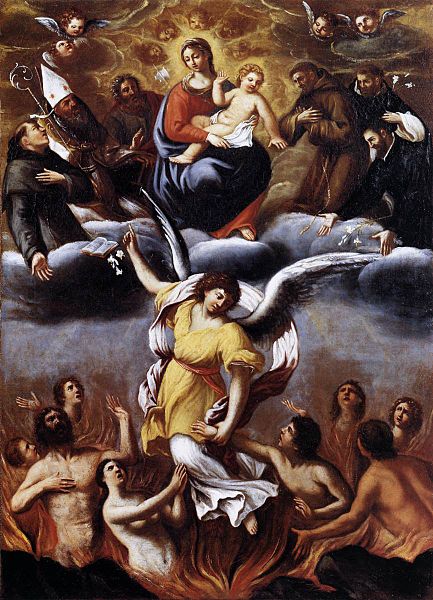
Souls go through the process of purification in purgatory. The greatest suffering in purgatory is the delay of the beatific vision, in other words, the greatest form of punishment a soul suffers from in purgatory is the postponement of meeting God in Heaven. However, most forms of Christianity also teach that purgatory is not a painful place.
Nobody knows how long a soul will have to stay in purgatory. Many believe that the duration of a soul’s stay in purgatory has a beginning but not an end in sight.
The duration of a soul’s stay depends entirely on the soul’s thoughts and affection and not on a series of physical changes.
The loved ones of the deceased, through their prayers, almsgiving, and offering of the Eucharist, can obtain comfort for the souls in purgatory.
Purgatory vs Hell
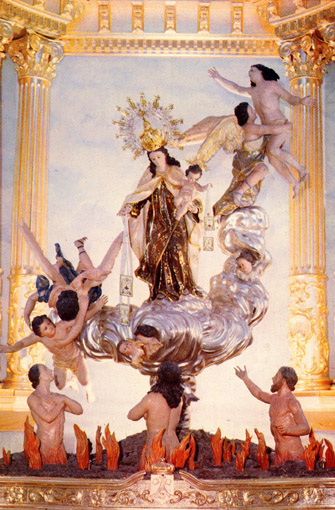
In Christianity, Hell is a place of eternal suffering, whereas, Purgatory is an intermediate state for souls where they undergo purification on their way to heaven.
The Catechism of the Catholic Church definitively emphasizes that “this final purification of the elect, is entirely different from the punishment of the damned.”
Purgatory can be seen as a waiting room for heaven, where the truly holy souls that love God embrace their final cleansing with profound gratitude as they prepare for communion with the Blessed Trinity.
Saint Josemaria Escriva says, “purgatory shows God’s great mercy and washes away the defects of those who long to become one with him.”
In contrast to purgatory, the Bible describes Hell as a place for eternal damnation, suffering, and pain where souls will be separated from the presence of God. In Matthew 5:29, Jesus teaches us that Hell is a place to be greatly feared and says, “It is better for you to lose one part of your body than for your whole body to be thrown into hell.” People who ignore the sufferings of others go to hell. There are no second chances in Hell and punishment lasts forever.
Read more: Rosary Sunday
Purgatory vs Limbo
Along with purgatory, limbo is another place that is commonly heard in movies and books to describe a place that is between heaven and hell. However, they are not to be confused as the same thing.
According to Catholic doctrine, there is no official place known as limbo. Purgatory, on the other hand, is a place where a soul purges its connection to earthly possessions and sins before entering heaven.
The limbo doctrine was introduced by the philosopher Augustine who suggested that the souls of children who are not baptized are consigned to hell. This doctrine was believed for another 800 years until Monk Thomas Aquinas claimed that the state of Limbo is a place of happiness for unbaptized children.
While limbo is a place, purgatory is a spiritual process that purifies the soul before it goes to heaven. It is believed that people who died before Jesus Christ were kept in limbo until Heaven, which had been closed as punishment for the sin of Adam, was reopened by the Savior, Jesus Christ. According to this belief, when Jesus passed away, he entered limbo and freed all of the people before he was resurrected.
Purgatory in Different Religions
No one truly knows what happens to our souls after we die. However, many people find comfort in their religious beliefs and how it interprets the mystery of the afterlife.
Many Christians believe that purgatory is a celestial waiting room where our soul goes through the process of cleansing before moving on to heaven. Other religions also have similar beliefs.
Judaism
The Torah doesn’t provide a specific answer to what happens to the soul after a person dies. However, according to Jewish beliefs, a person who refrains from sin goes to Gan Eden, and the people who live sinful life goes to Gehenna.
It is said that Gehenna extends indefinitely under the ground with fires 60 times hotter than those on Earth. Gehenna is also a place where sinners go to not only be punished but also purified. Sinners with less severe offenses can be purified and allowed to ascend to Gan Eden.
Tibetan Buddhism
Buddhists believe in reincarnation after death. According to Tibetan Buddhism, the period of time between a person’s death and rebirth is known as bardo. The state of bardo lasts for 49 days.
During this time, the soul of the dead person reflects on its former life and experiences a series of apparitions based on the karma it had created for itself during its life.
These apparitions can confuse the soul and lead it away from finding enlightenment. If and when this happens, the person will experience rebirth and transition into a new body.
When the soul is in the state of bardo the prayers, thoughts, and kind words of their loved ones can reach the soul and help them navigate the confusing state of bardo.
Islam
According to Islamic beliefs, in the time between the death of a person and the Day of Judgment, the soul is trapped between the two states of existence. The two states of existence are separated by a barrier called Barzakh which is created by Allah. It is believed that there is no suffering on Barzakh.
And while it resembles the reality on earth, it does not have a physical presence. Many believe Barzakh to be beyond the realm of human understanding.
It is also said that things like smell, taste, and sound are experienced to extremes in Barzakh. According to Islamic folklore, the souls in Barzakh have the ability to visit the world of the living and check on their loved ones.
Zoroastrianism
Zoroastrianism is the world’s oldest religion and is even credited for developing many of the concepts included in Abrahamical religions. According to Zoroastrian beliefs, the soul of the recently departed stays on earth for 3 days before ascending to the Chinvat Bridge where judgment occurs.
Souls that are free of sin can cross the bridge and live the rest of their days in a blissful garden with a heavenly companion. On the other hand, souls that have sinned discover a different bridge that is too narrow for them to walk.
People who have sinned but have also performed good deeds find themselves in a place called Hamistagan. People are neither mistreated nor rewarded in Hamistagan. Souls in Hamistagan must wait until Judgment day to know where their soul goes.
Read more: Rosary Monday
Prayer for the Poor Souls in Purgatory
Prayer of Saint Gertrude the Great
“Eternal Father, I offer Thee the Most Precious Blood of Thy Divine Son, Jesus, in union with the Masses said throughout the world today, for all the Holy Souls in Purgatory, for sinners everywhere, for sinners in the universal Church, those in my own home, and within my family. Amen.”
Prayer of Saint Faustina
O Jesus, I understand that Your mercy is beyond all imagining.
I ask You, therefore, to make my heart so big
that there will be room in it for the needs
of all the souls living on this whole earthly globe.
O Jesus, my love reaches beyond the world
to the souls suffering in Purgatory,
and I want to exercise mercy toward them
by means of indulgenced prayers.
God’s mercy is unfathomable and inexhaustible,
just as God Himself is unfathomable.
Were I to use the strongest words for expressing this mercy of God,
they are nothing in comparison with what it is in reality.
O Jesus, make my heart sensitive to all the sufferings
of my neighbor whether they be of body or of soul.
O my Jesus, I know that You act toward us as we act toward our neighbor.
My Jesus, make my heart like unto Your merciful Heart.
Jesus, help me to go through life doing good to everyone.
Amen.
Prayer for souls in Purgatory
O Lord God Almighty, I beseech You by the Precious Blood which
gushed forth from the sacred side of Your Divine Son Jesus in the
presence and to the great sorrow of His most Holy Mother, deliver the
souls in purgatory and among them all especially that soul which has
been most devout to this noble Lady, that it may come quickly into
Your glory, there to praise You in her, and her in You through all the ages.
Amen.
Eternal Rest Prayer or Eternal Rest Grant Unto Them Prayer (English)
V. Eternal rest grant unto them, O Lord.
R. And let the perpetual light shine upon them.
And may the souls of all the faithful departed, through the mercy of God, rest in peace. Amen.
Eternal Rest Prayer or Eternal Rest Grant Unto Them Prayer (Latin)
V. Requiem aeternam dona eis, Domine.
R. Et lux perpetua luceat eis.
Fidelium animae, per misericordiam Dei, requiescant in pace. Amen.
St. Gertrude Prayer for the Souls in Purgatory
Let us begin, In the name of the Father, and of the Son, and of the Holy Spirit. Amen.
Eternal Father, I offer Thee the Most Precious Blood of Thy Divine Son, Jesus, in union with the masses said throughout the world today, for all the holy souls in purgatory, for sinners everywhere, for sinners in the universal church, those in my own home and within my family.
Amen.

